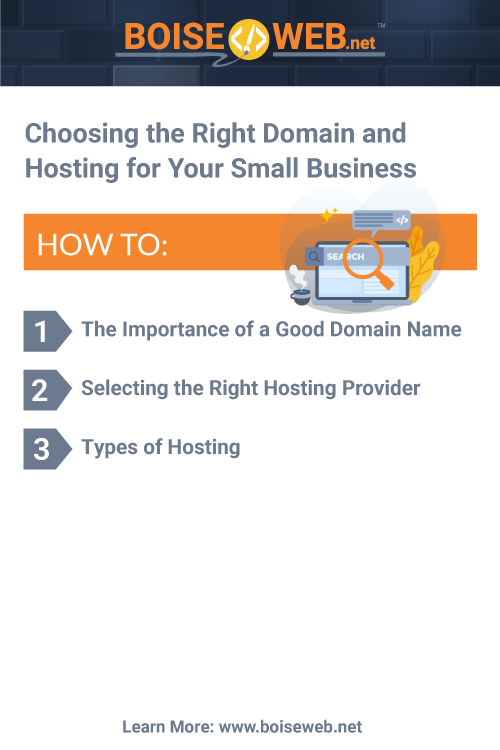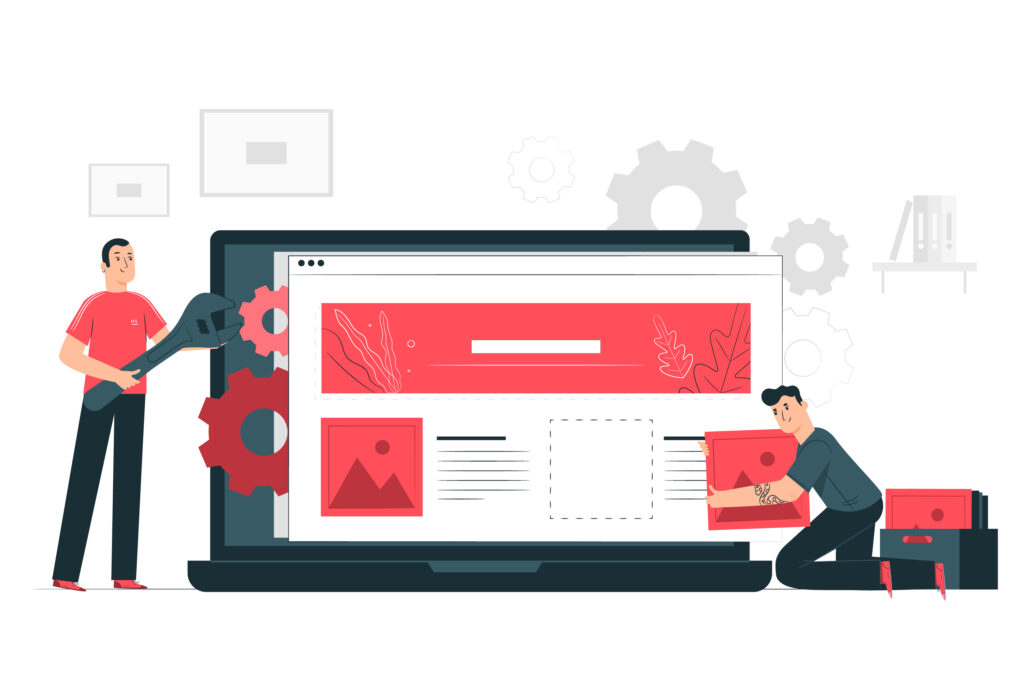Your website serves as a virtual storefront and is often the first point of contact between potential customers and your brand. To establish a professional and reliable online presence, it’s essential to choose the right domain and hosting services for your small business website. In this article, we’ll guide you through the key considerations for selecting the perfect domain and hosting for your needs.
The Importance of a Good Domain Name
- Keep It Simple and Memorable
- Reflect Your Brand
- Use Keywords Wisely
- Choose the Right Domain Extension
- Check Availability and Trademarks
Your domain name is your digital address, and it plays a significant role in shaping your online identity. When choosing a domain name for your small business website, keep the following tips in mind:
1. Keep It Simple and Memorable
Your domain name should be easy to remember and type. Avoid using complex or long phrases that are prone to typos. Simplicity is key, as it makes it easier for visitors to find and remember your website.
2. Reflect Your Brand
Ideally, your domain name should reflect your business name or the products/services you offer. This helps with brand recognition and can make your website more memorable.
3. Use Keywords Wisely
Incorporating relevant keywords into your domain can boost your website’s visibility in search engine results. However, be cautious not to overdo it, as keyword stuffing can negatively affect your website’s SEO.
4. Choose the Right Domain Extension
Consider the domain extension (.com, .net, .org, .biz, etc.) carefully. While .com is the most popular and widely recognized, other extensions can work well depending on your business type and location.
5. Check Availability and Trademarks
Before settling on a domain name, ensure it’s available for registration and doesn’t infringe on any trademarks. There are numerous domain registrars online that allow you to search for domain availability.
Selecting the Right Hosting Provider
- Uptime and Reliability
- Scalability
- Performance and Speed
- Security Features
- Customer Support
- Pricing and Budget
Once you’ve secured a suitable domain name, the next step is choosing a reliable hosting provider to ensure your website is accessible 24/7. Here are some factors to consider when selecting a hosting provider:
1. Uptime and Reliability
Uptime is critical; you want your website to be accessible to visitors at all times. Look for hosting providers that offer a high uptime guarantee, typically 99.9% or higher.
2. Scalability
Consider your business’s future growth when choosing a hosting plan. Opt for a provider that offers scalable options, allowing you to easily upgrade your hosting as your website traffic and needs expand.
3. Performance and Speed
Fast-loading websites are essential for a positive user experience and better search engine rankings. Look for hosting providers that offer high-performance servers and content delivery networks (CDNs) to optimize your website’s speed.
4. Security Features
Ensure the hosting provider offers robust security measures, including SSL certificates, firewalls, and regular backups, to protect your website and customer data from cyber threats.
5. Customer Support
Responsive and knowledgeable customer support is invaluable. Choose a hosting provider that offers 24/7 customer support through various channels (phone, chat, email) to assist you with any technical issues or inquiries.
6. Pricing and Budget
Compare the pricing plans and features offered by different hosting providers. While cost is a factor, don’t compromise on quality and reliability for the sake of saving a few dollars.
Types of Hosting
- Shared Hosting
- VPS (Virtual Private Server) Hosting
- Dedicated Hosting
- Cloud Hosting
There are several types of hosting options available, each catering to different needs and budgets:
1. Shared Hosting
Shared hosting is a cost-effective option suitable for small businesses with low to moderate website traffic. However, resources are shared with other websites on the same server, which can lead to slower performance during traffic spikes.
2. VPS (Virtual Private Server) Hosting
VPS hosting provides more resources and better performance than shared hosting. It’s a good choice for businesses that need more control over their hosting environment and anticipate moderate to high traffic.
3. Dedicated Hosting
Dedicated hosting offers a server entirely dedicated to your website, providing maximum performance, control, and security. It’s ideal for large websites with high traffic volumes and specific requirements.
4. Cloud Hosting
Cloud hosting is a flexible and scalable option that utilizes multiple virtual servers across a network. It’s a good choice for businesses that require high uptime, reliability, and the ability to scale resources as needed.
Choosing the right domain and hosting services for your small business website is a critical decision that can significantly impact your online success. Take the time to research and consider your options carefully, keeping in mind factors such as domain name, hosting type, uptime, security, and scalability. By making informed choices, you can create a strong online presence that effectively represents your business and serves your customers’ needs. Remember, your website is often the first impression potential customers have of your brand, so make it a memorable and reliable one.







